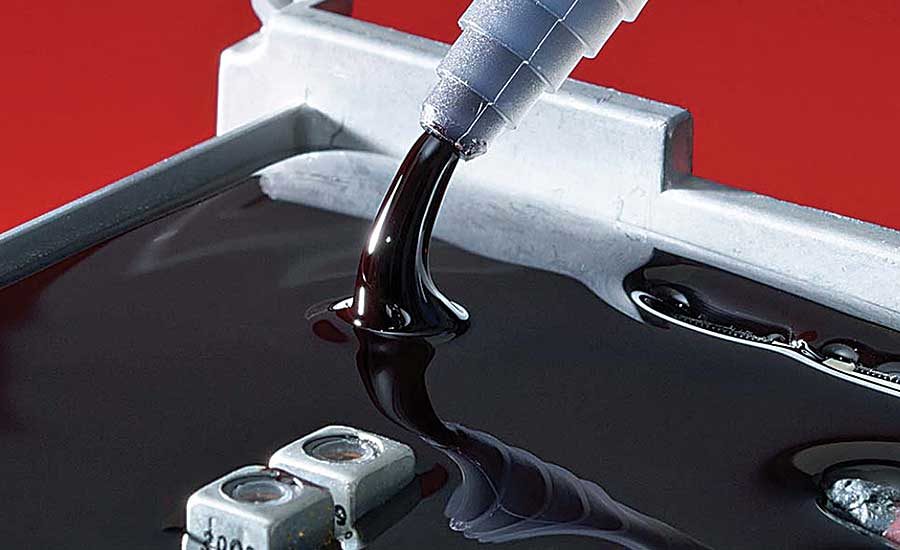Exploring the Power of Electrical Epoxy Resin | A Comprehensive Guide
In the realm of electronics and electrical engineering, where precision, reliability, and safety are paramount, the choice of materials plays a pivotal role. One such material that stands out for its exceptional properties and versatility is electrical epoxy resin. In this comprehensive guide, we delve into the world of electrical epoxy resin, exploring its characteristics, applications, and significance in various industries.
What is Electrical Epoxy Resin?
Epoxy resin is a versatile polymer widely used in various industries due to its excellent mechanical and electrical properties. When it comes to electrical applications, epoxy resin is formulated with specific additives to enhance its electrical insulation properties.

Volume Resistivity and Ohm/cm: Volume resistivity is a crucial parameter in electrical insulation materials, including epoxy resin. It measures a material's ability to resist the flow of electrical current. Epoxy resins typically exhibit high volume resistivity, often measured in ohms per centimeter (ohm/cm), making them ideal for electrical insulation purposes.
Dissipation Factor and Dielectric Constant: The dissipation factor and dielectric constant are key indicators of how efficiently a material can store and dissipate electrical energy. Epoxy resins are known for their low dissipation factor and dielectric constant, making them excellent choices for applications requiring stable electrical properties.
Flash Point and Thermal Shock Resistance: Flash point refers to the temperature at which a material emits flammable vapors. Electrical epoxy resins are formulated to have high flash points, ensuring safety during processing and application. Additionally, these resins exhibit remarkable thermal shock resistance, enabling them to withstand rapid temperature changes without compromising performance.
Applications of Electrical Epoxy Resin
Electronics Potting and Encapsulation: One of the primary applications of electrical epoxy resin is in potting and encapsulating electronic components. By encapsulating delicate electronics, epoxy resin provides protection against moisture, dust, vibration, and other environmental factors, thereby enhancing the lifespan and reliability of electronic devices.
Electrical Insulation: In electrical systems and equipment, maintaining proper insulation is critical to prevent short circuits and electrical breakdowns. Electrical epoxy resin serves as an effective insulating material, ensuring the safe and reliable operation of electrical components and systems.
High Voltage Equipment: High voltage equipment and power distribution systems demand materials capable of withstanding extreme electrical stress. Electrical epoxy resin, with its superior dielectric properties and high breakdown voltage, is well-suited for insulating and protecting high voltage components.
Applications Requiring Shock Resistance: Industries such as automotive, aerospace, and telecommunications often require materials with excellent shock resistance. Electrical epoxy resin, with its ability to absorb mechanical shocks and vibrations, finds widespread use in these applications, ensuring the durability and reliability of critical components.
Choosing the Best Electrical Epoxy Resin
Selecting the right electrical epoxy resin involves considering various factors such as operating conditions, mechanical requirements, and regulatory standards. Manufacturers offer a diverse range of epoxy resins tailored to specific applications, ensuring compatibility and optimal performance.
Key Considerations for Selection:
- Electrical properties (volume resistivity, dissipation factor, dielectric constant)
- Mechanical strength and durability
- Thermal stability and shock resistance
- Environmental and regulatory compliance
Processing and curing characteristics
Conclusion
Electrical epoxy resin stands as a cornerstone in the field of electrical engineering and electronics, offering unparalleled insulation, protection, and reliability. Its exceptional electrical properties, combined with robust mechanical strength and thermal stability, make it indispensable in a wide range of applications spanning industries. As technology advances and demands for higher performance escalate, the role of electrical epoxy resin continues to evolve, driving innovation and powering the future of electrical systems and devices. As a professional electrical epoxy resin manufacturer and electrical insulating solutions provider, we would be pleased to advise you individually, and you are also welcome to send your inquiry to eason@jxrt.com.


